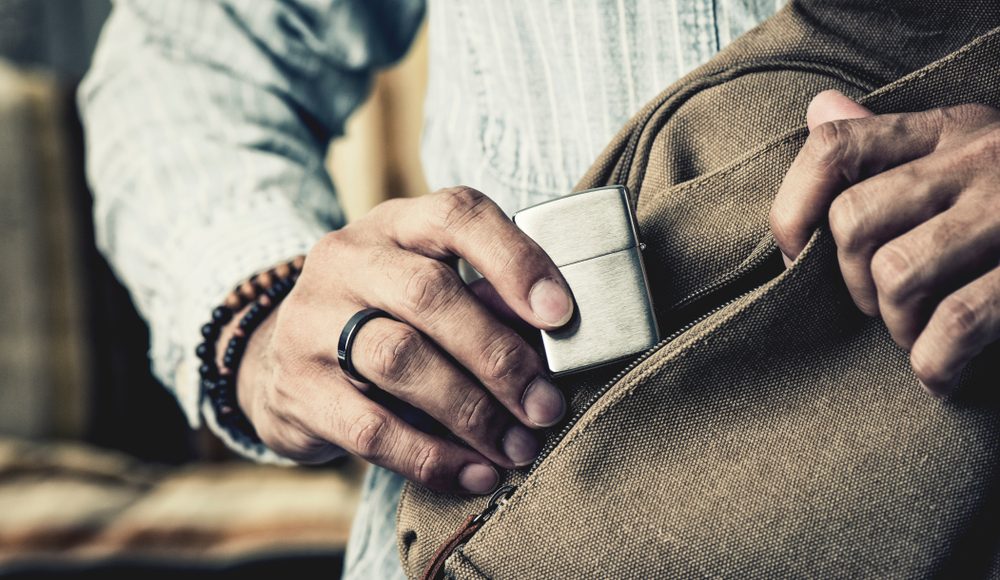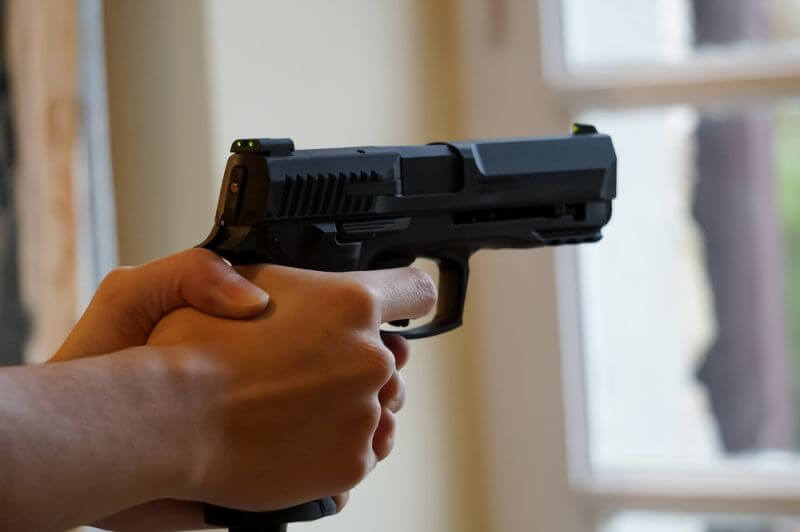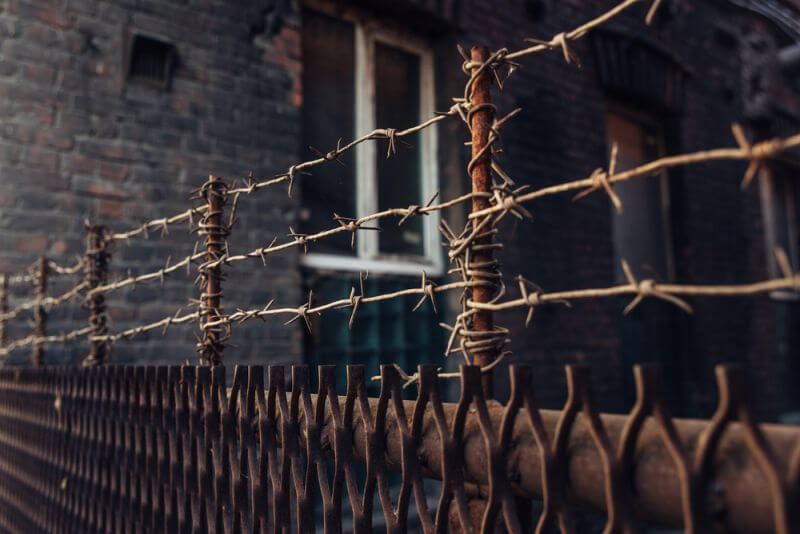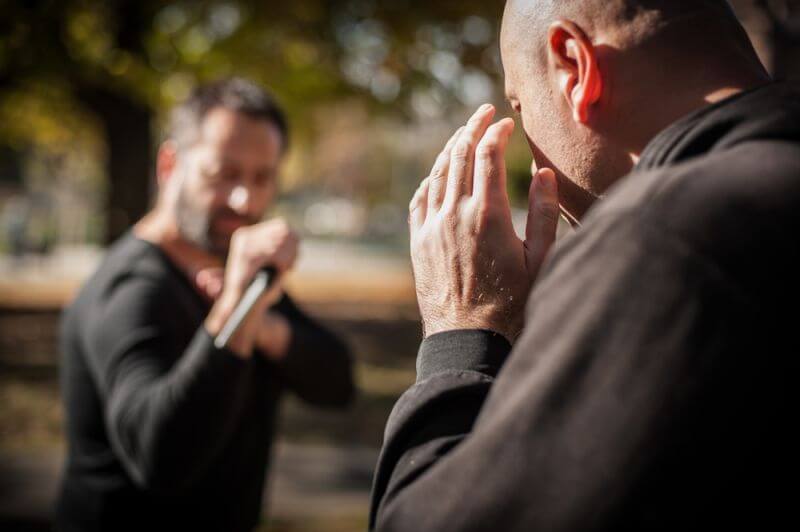It may seem a bit early, but people are already starting to plan their summer vacations. In a couple of months, kids will be out of school, and families will be packing up to head to… wherever.
Most people will have enjoyable vacations, with nothing more serious happening to them than spending too much money.
But there’s always a tiny percentage of people whose vacations don’t turn out that way. The people riding on the Titanic’s maiden voyage ended up in a problematic survival situation, with over half of the people on board dying. A different sort of fate waited for those who set sail on the Diamond Princess cruise ship. Ten people came down with COVID-19, and because of the quarantine imposed upon the ship, their number quickly grew to 619.
Passenger liners aren’t the only ones who have their travel plans destroyed by crises. It happens to passengers on the airlines, people who get in the way of a forest fire, and even those trying to visit grandma.
The truth is that we don’t know what sorts of problems we’re going to encounter when we go out our front door. Everything could end up fine, or we could suddenly find ourselves amid a disaster. Being prepared could end up being the difference between surviving vacation or not.
That’s why we should always make sure that our preparedness goes with us on vacation. We can’t bring everything we own with us, but that’s not saying that we can’t take anything. I never go out the door without a good everyday carry bag (EDC bag), and if I’m driving on vacation, I take a whole lot more.
EDC Kit
My EDC bag is essentially a heavy survival kit built into a cross-body EDC bag from Condor. It’s spacious enough that I have a good assortment of survival gear, a first-aid kit, and even some emergency food in it. I’ve carried it for years, adding to it over time, and I’ve taken pains to make it worthwhile for a wide variety of situations. Not only does it have a rich assortment of survival tools, but it also contains things I might use on a day-to-day basis. Not all situations where an EDC bag might be helpful are survival situations; some are just the vagrancies of daily life.
For example, my EDC bag has a rain poncho in it, perhaps the single piece of gear that has been used the most. It also has a small personal hygiene kit included, which is helpful if I end up overnighting somewhere that I hadn’t expected to. I also keep such exciting things as paperclips and stamps because those are things people tend to need every day.
This EDC bag doubles as my get-home bag (GHB) should I end up stranded somewhere and need to get home. I decided that it didn’t make any sense for me to carry both, as most of the items would be duplicated between them. It was easier to create a kit that could be used for both.
Now that the COVID pandemic has changed all of our lives, this kit has changed somewhat. The main difference is that I’ve added masks, gloves, and hand sanitizer to it. I’ve also added those items to all my other kits, including my BOB.
By the way, I have an almost identical kit in my wife’s car, as we use it as the family car. That way, not only do I have those things available to me, should I need them, but she has them available as she goes to work. While she may not be fully trained on using everything I’ve put in the kit, she has enough knowledge to take care of herself until I can get there to rescue her.
Traveling by Car
People vacation in various ways, some preferring to travel by car, others by airplane and still others by boat. Regardless, there is a chance of problems cropping up.
My personal preference is to travel by car, especially now in a Post-COVID world. While traveling by car takes longer, I have at least some control over the situation. That control is turned over to others when we choose to travel by air, ship, or train. Losing control of the situation to those others may end up affecting our ability to stay alive.
Traveling by car also allows me to take more with me, as my SUV has ample luggage space. So I don’t just carry my EDC when traveling. I upgrade to what is essentially a bug-out bag (BOB). I expand on the EDC bag shown above and doubling up on some items, such as the rain poncho, so that my wife and I will both have them. It provides me with enough to survive for several days, should we become stranded. Also, it gives me gear to help with unusual situations, like utensils for eating leftovers.
Besides, I keep an emergency kit for dealing with car problems. It contains the essential fluids, belts & hoses, spark plugs, wires, and basic tools. It’s enough that I can take care of basic repairs along the way, should I need to.
During the winter months, I add some cold-weather gear and blankets to what we keep in the car. But I do that whether we’re traveling or staying home.
Traveling by Air or Ship
Traveling by air or even by ship adds some complications to the idea of survival, primarily because of our lack of control over the situation. I’m sure that the passengers aboard the Diamond Princess would have liked to get off that ship rather than stay there to become infected. This was early on in the pandemic, and few people had any idea what to do. They were left there like laboratory mice, waiting to see if they would become infected by something smaller than their eyes could see. They didn’t even know what they could do to protect themselves.
Traveling by air or ship poses several problems, compared to traveling by car. That is that we are limited by what we can take with us. Rather than having the entire back of the vehicle, which we can fill with emergency gear, food, water, and clothing, we’re usually limited to one suitcase and a carry-on. For me, that carry-on is usually my briefcase or backpack, with my laptop inside.
My solution is to take the biggest suitcase that I can, checking it through. As of yet, no airline has rejected me the right to take a big bag with me, just as long as the overall weight is under the maximum weight allowed per bag. I bought a very light but high-quality suitcase just for this purpose.
That big suitcase allows me to bring my EDC bag along. It also allows me to get my pistol unloaded and in an approved case. The airlines don’t disallow transporting firearms in your luggage, as long as you follow the rules. But make sure that you can still carry in the state you’re going to so that you don’t run into problems at the other end.
The EDC bag and double-sided gun case take up about a third of the space in it. But that still leaves me with enough room for my clothes. So I’m able to take care of my need in whatever situation I find myself in.
Once We Get There
There are always things we can’t carry enough of while traveling, such as food and water. We have snacks and drinks in the car if we’re traveling that way, and we tend to buy water in the airport when flying. But that’s not enough to take care of us, should we be stranded somewhere. So, when we arrive at our destination, one of the first things we do is go to a grocery store. That may seem like a waste of vacation time, but we usually eat out of the cooler for breakfast and lunch, only eating in restaurants for dinner. So the food we buy are things we’re going to eat anyway. As far as the water is concerned, a case of water doesn’t cost much, while buying cold bottles of water does.
Since the risk of disasters doesn’t go away, just because you are on vacation, take the time to keep tuned in to the news, whether you do that on radio or online. You can cut down on your regular news consumption if you want; make sure that your ear is tuned to anything that could lead to a disaster.
That mainly means keeping track of the weather, as the most common disasters we encounter are natural disasters. It may inconvenience your vacation plans, but if you know that a storm is coming, it would be a good idea to switch around your schedule, sticking to indoor activities for that day and doing the outdoor ones at some other time.
One thing I’d caution you about that is to watch your family’s mood. Some family members might get upset if you change your plans, especially if that means they don’t get to do something they’ve been looking forward to. It’s risky to let their ill humor change your mind, so be careful about that. Instead, turning the situation into a teaching moment, talking about making the best of a situation.
Never leave valuables unattended
The most considerable risk you actually face on most vacations is that of theft. Vacationers are a prime target for pickpockets, those who specialize in breaking into cars and rooms, especially in places that are considered tourist destinations. These criminals live off of what they can steal from tourists, so expect them to be looking for you.
Never leave valuables unattended, not even in your hotel room and especially not in your car. If you must go them somewhere, use the hotel’s safe. Most hotels have one and will be glad to store your valuables for you if there isn’t one in your room.
Besides that, your best defense against having problems with criminals is to keep your head on a swivel, just like you would at any other time. Criminals don’t want to be seen and identified, so if they think you’ve seen them or even see that you’re keeping an eye on what’s going on around you, they’re much more likely to leave you alone.
Taking a lot of random pictures is another good way of keeping criminals away. They won’t want to be caught in your camera’s memory, thereby giving you evidence that you can turn over to the police. Even if they had already scouted you and decided to see what they could get from you, seeing you taking pictures will cause them to turn tail, just as if you were shooting at them.










